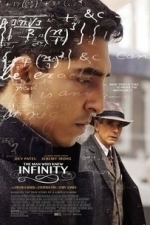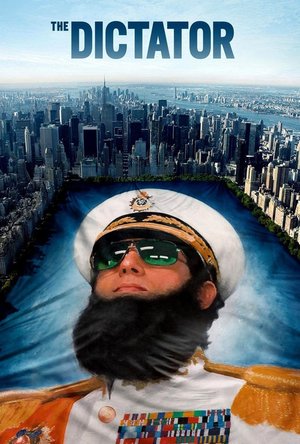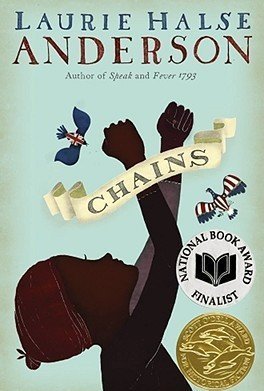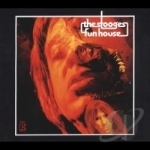Search
Search results
Gareth von Kallenbach (980 KP) rated The Man Who Knew Infinity (2016) in Movies
Aug 6, 2019
In 1914, Srinivasa Ramanujan (Dev Patel) traveled from his poverty-stricken existence in Madras, India to Trinity College, Cambridge in the hope that he would have his theories published and be recognized for the mathematical genius he was. While there, despite facing racism, hostility and severe illness, he formed an important relationship with G.H. Hardy (Jeremy Irons) that would lead to breakthroughs in mathematics that are still relevant today.
It would be easy to prattle on about the tremendous talent onscreen in The Man Who Knew Infinity and with a supporting cast that features some of Britain’s best; we get exactly what we’d expect from the likes of Jeremy Irons, Toby Jones and Kevin McNally. All at the top of their game, they serve the story well with nuanced and well-rounded performances, and I’m certainly not going to take anything away from the exceptional jobs they’ve all done here. All the praise this film deserves however, needs to be directed at Dev Patel. In his role as Ramanujan, he’s completely stepped out of the shadow of his big-screen debut in Slumdog Millionaire and has proved his worth as a leading man capable of carrying the weight of an entire feature. Distancing himself also from the lovable, bumbling hotel owner in The Best Exotic Marigold movies, with Ramanujan he is allowed the room to display an incredible range, from quiet intensity to outspoken, unbridled passion and determination. Kudos also to the writers for not going The Big Short route (e.g. talking down to the uninitiated with ridiculous cutaways), but by using simple logic and examples to help convey complex information relevant to the plot.
For the performances alone, this is a solid entry in the biopic genre, but structurally speaking, it’s the editing that lets the film down. This very easily could have emerged as the next A Beautiful Mind, but between a bloated first act, a middling and wandering second act and a truncated final third, The Man Who Knew Infinity falls just short of greatness. Not only is no attention paid to Ramanujan’s achievements as a child, but too much time is given to details and subplots that are arguably inconsequential to the main narrative. This is especially evident in the inclusion of Bertrand Russell (who lived such a rich and fascinating life himself, it would take several films to do that story justice) and his being here feels like just a hollow excuse to include a cameo from another figure of historical importance. The biggest disservice though comes with the ending where we are denied a much needed catharsis and are left to suffer through a slap-dash, halfhearted montage. A restructuring from a more seasoned hand would have undoubtedly led to stronger word-of-mouth and perhaps a wider release. I also wouldn’t be surprised to learn that this is a case of “too many cooks” as the film has a staggering 43 credited producers. I get that independent features can be forced to source their funding from many places, but you can’t tell me that with all those opinions flying about that some of the original intent didn’t get lost in the noise.
As an aside, what Stephen Fry is doing here is beyond me. He’s given two scenes with perhaps a half a dozen lines, leaving his incomparable persona entirely wasted on a completely throwaway character. It’s a pity he wasn’t given a meatier role as one of Ramanujan’s antagonists.
It would be easy to prattle on about the tremendous talent onscreen in The Man Who Knew Infinity and with a supporting cast that features some of Britain’s best; we get exactly what we’d expect from the likes of Jeremy Irons, Toby Jones and Kevin McNally. All at the top of their game, they serve the story well with nuanced and well-rounded performances, and I’m certainly not going to take anything away from the exceptional jobs they’ve all done here. All the praise this film deserves however, needs to be directed at Dev Patel. In his role as Ramanujan, he’s completely stepped out of the shadow of his big-screen debut in Slumdog Millionaire and has proved his worth as a leading man capable of carrying the weight of an entire feature. Distancing himself also from the lovable, bumbling hotel owner in The Best Exotic Marigold movies, with Ramanujan he is allowed the room to display an incredible range, from quiet intensity to outspoken, unbridled passion and determination. Kudos also to the writers for not going The Big Short route (e.g. talking down to the uninitiated with ridiculous cutaways), but by using simple logic and examples to help convey complex information relevant to the plot.
For the performances alone, this is a solid entry in the biopic genre, but structurally speaking, it’s the editing that lets the film down. This very easily could have emerged as the next A Beautiful Mind, but between a bloated first act, a middling and wandering second act and a truncated final third, The Man Who Knew Infinity falls just short of greatness. Not only is no attention paid to Ramanujan’s achievements as a child, but too much time is given to details and subplots that are arguably inconsequential to the main narrative. This is especially evident in the inclusion of Bertrand Russell (who lived such a rich and fascinating life himself, it would take several films to do that story justice) and his being here feels like just a hollow excuse to include a cameo from another figure of historical importance. The biggest disservice though comes with the ending where we are denied a much needed catharsis and are left to suffer through a slap-dash, halfhearted montage. A restructuring from a more seasoned hand would have undoubtedly led to stronger word-of-mouth and perhaps a wider release. I also wouldn’t be surprised to learn that this is a case of “too many cooks” as the film has a staggering 43 credited producers. I get that independent features can be forced to source their funding from many places, but you can’t tell me that with all those opinions flying about that some of the original intent didn’t get lost in the noise.
As an aside, what Stephen Fry is doing here is beyond me. He’s given two scenes with perhaps a half a dozen lines, leaving his incomparable persona entirely wasted on a completely throwaway character. It’s a pity he wasn’t given a meatier role as one of Ramanujan’s antagonists.
Gareth von Kallenbach (980 KP) rated The Dictator (2012) in Movies
Aug 7, 2019
Sacha Baron Cohen is undoubtedly one of the most daring names in comedy recently. A Cambridge graduate, the comedian-actor who has starred in fairly controversial films “Bruno” and “Borat” returns with director Larry Charles in 2012’s “The Dictator”. What can be said about Cohen, over other contemporary comedians, is his absolutely excellent ability to inhabit a character role – both in and out of the film he is portrayed in. “The Dictator” is no exception to this, yet it might be the controversy regarding the Academy Awards snub that is remembered more than this film.
Cohen plays the hilariously named Admiral General Aladeen, a megalomaniacal dictator of a fictional oil-rich North African country named Waadeya. While on his trip to the UN to deliver a speech, he is thrown from his oppressive dictatorial role into that of a lost New Yorker, desperate to get back to his position as dictator. He meets others along the way to help him, namely Aasif Mandvi and Anna Farris.
The film’s plot is about as formulaic and basic as a comedy can get, simply serving as a vehicle to push from one joke to the next. If you were expecting any sort of compelling narrative, with jokes sprinkled throughout, then this movie will not be enjoyable. It completely rides upon its humor, which is both beneficial and detrimental. If the film at least attached you to particular characters other than Admiral General Aladeen then it might benefit more from its gags featuring multiple characters.
The real highlight of the film is Cohen’s consistent portrayal of this outrageous ruler. He is funny throughout; and even though he might be a horrible person with villainous qualities, he has a childish heart underneath. It is that mixture of qualities that makes for some very hilarious moments.
The actual jokes and gags themselves hold their own throughout. As mentioned, the film plods forward from one gag or joke to the next, with story simply setting up the scenes. Most of the jokes were grin worthy, and a handful of them were laugh-out-loud hilarious. Yet, overall I would not call it the funniest movie of the year. There’s a bit of everything in the movie. Sacha Baron Cohen’s trademark shocking and offensive humor will please the college moviegoers and his more clever witty humor will amuse older watchers. Yet, even the offensive humor appears to be more tame than his other movies’ most memorable moments. The whole film also deals heavily with contemporary political issues – specifically the power-obsessed dictators which have filled the news as of late. Cohen’s character pokes fun at both the absurdity of people like Colonel Ghadafi as well as the hangers-on who surround such people.
Overall, the movie maintains a consistent level of humor throughout. While that level of humor may remain at simply grin-level comedy, it still has a handful of laugh-out-loud moments. It might not be the funniest movie of the year, but it is by no means bad at what it does. A less formulaic plot would have benefited the movie’s gags by allowing other comedians in the movie to shine more. As it stands, it is a movie centered completely on Cohen’s comedy and held up by it as well. Not completely unlike the self-centered nature of his character, Admiral General Aladeen.
Cohen plays the hilariously named Admiral General Aladeen, a megalomaniacal dictator of a fictional oil-rich North African country named Waadeya. While on his trip to the UN to deliver a speech, he is thrown from his oppressive dictatorial role into that of a lost New Yorker, desperate to get back to his position as dictator. He meets others along the way to help him, namely Aasif Mandvi and Anna Farris.
The film’s plot is about as formulaic and basic as a comedy can get, simply serving as a vehicle to push from one joke to the next. If you were expecting any sort of compelling narrative, with jokes sprinkled throughout, then this movie will not be enjoyable. It completely rides upon its humor, which is both beneficial and detrimental. If the film at least attached you to particular characters other than Admiral General Aladeen then it might benefit more from its gags featuring multiple characters.
The real highlight of the film is Cohen’s consistent portrayal of this outrageous ruler. He is funny throughout; and even though he might be a horrible person with villainous qualities, he has a childish heart underneath. It is that mixture of qualities that makes for some very hilarious moments.
The actual jokes and gags themselves hold their own throughout. As mentioned, the film plods forward from one gag or joke to the next, with story simply setting up the scenes. Most of the jokes were grin worthy, and a handful of them were laugh-out-loud hilarious. Yet, overall I would not call it the funniest movie of the year. There’s a bit of everything in the movie. Sacha Baron Cohen’s trademark shocking and offensive humor will please the college moviegoers and his more clever witty humor will amuse older watchers. Yet, even the offensive humor appears to be more tame than his other movies’ most memorable moments. The whole film also deals heavily with contemporary political issues – specifically the power-obsessed dictators which have filled the news as of late. Cohen’s character pokes fun at both the absurdity of people like Colonel Ghadafi as well as the hangers-on who surround such people.
Overall, the movie maintains a consistent level of humor throughout. While that level of humor may remain at simply grin-level comedy, it still has a handful of laugh-out-loud moments. It might not be the funniest movie of the year, but it is by no means bad at what it does. A less formulaic plot would have benefited the movie’s gags by allowing other comedians in the movie to shine more. As it stands, it is a movie centered completely on Cohen’s comedy and held up by it as well. Not completely unlike the self-centered nature of his character, Admiral General Aladeen.
Cassie Osbourne (6 KP) rated Chains (Seeds of America, #1) in Books
Nov 9, 2018
When Isabel and Ruth's owner dies, they are sold to the loyalist Locktons and shipped to New York. 'Chains' tells the story of the American Revolution through the eyes of a thirteen-year-old slave, struggling to take care of her little sister and discover what real freedom is and how a person can gain it.
I first read this book in 2010 when I was thirteen while I was stuck at a grammar school open evening that my sister was at. I went to the library and started reading 'Chains' instead of having to traipse around hearing about how many geniuses of that school got into Oxford and Cambridge. I was so hooked that I felt that I couldn't leave without it so I stuck it up my jumper and nicked it. I have recently (and legally) got my hands on a copy of 'Ashes', the final book in the trilogy and so am rereading the first two books which I haven't done in years. I am pleased to say that it is still as good as it was when I read it eight years ago.
While I do like well rounded, complex characters and relationships, there is certainly something to be said for simplicity. None of the characters has too much of a character arc in this book except for the protagonist, who is the one telling the story so this may have something to do with her being an unreliable narrator (something that you learn so much about in English A-Level). Did the characters seem a bit stereotypical and cliched at times? Yes, definitely. Did I really care? No, not especially.
The atmosphere was great throughout, especially in the prison scenes and when Isabel has a fever. Everything felt very real and detailed, right down to the last black hair ribbon stashed in a draw. Every chapter, every page, every sentence felt so real and grounded in reality which is difficult to find in a book.
I really enjoyed the writing style, it all suited Isabel's voice down to the ground. Something that I noticed more reading it this time than I did when I was younger were the extracts at the beginnings of the chapters as it is a really nice and easy way to contextualise what is going on in the chapter in comparison to the date in with the chapter is set. It also gives the book a much more political feel which, again, I didn't quite see as much when I was younger.
The plot as a whole is very good and well written but there were definitely some sections that were just not needed or justified at all. However, that is a very minor thing.
The only real downfall of this book was some of the logic. Isabel gets way too lucky too many times, especially since she is a young black girl with a very distinctive scar on her face. A lot of people just seem too nice to her given that she is a slave and the level of racism back then as well. There is one particular instance at the end with some fireworks that I just pure and simply didn't buy.
This book, as well as 'Forge', has been sitting on my shelf for years just waiting to be picked up again and reread. I am so happy that so many years after I read it the first time it is still just as good.
Characters: 8/10
Atmosphere: 9/10
Writing Style: 8/10
Plot: 8/10
Intrigue: 9/10
Logic: 7.5/10
Enjoyment: 10/10
I first read this book in 2010 when I was thirteen while I was stuck at a grammar school open evening that my sister was at. I went to the library and started reading 'Chains' instead of having to traipse around hearing about how many geniuses of that school got into Oxford and Cambridge. I was so hooked that I felt that I couldn't leave without it so I stuck it up my jumper and nicked it. I have recently (and legally) got my hands on a copy of 'Ashes', the final book in the trilogy and so am rereading the first two books which I haven't done in years. I am pleased to say that it is still as good as it was when I read it eight years ago.
While I do like well rounded, complex characters and relationships, there is certainly something to be said for simplicity. None of the characters has too much of a character arc in this book except for the protagonist, who is the one telling the story so this may have something to do with her being an unreliable narrator (something that you learn so much about in English A-Level). Did the characters seem a bit stereotypical and cliched at times? Yes, definitely. Did I really care? No, not especially.
The atmosphere was great throughout, especially in the prison scenes and when Isabel has a fever. Everything felt very real and detailed, right down to the last black hair ribbon stashed in a draw. Every chapter, every page, every sentence felt so real and grounded in reality which is difficult to find in a book.
I really enjoyed the writing style, it all suited Isabel's voice down to the ground. Something that I noticed more reading it this time than I did when I was younger were the extracts at the beginnings of the chapters as it is a really nice and easy way to contextualise what is going on in the chapter in comparison to the date in with the chapter is set. It also gives the book a much more political feel which, again, I didn't quite see as much when I was younger.
The plot as a whole is very good and well written but there were definitely some sections that were just not needed or justified at all. However, that is a very minor thing.
The only real downfall of this book was some of the logic. Isabel gets way too lucky too many times, especially since she is a young black girl with a very distinctive scar on her face. A lot of people just seem too nice to her given that she is a slave and the level of racism back then as well. There is one particular instance at the end with some fireworks that I just pure and simply didn't buy.
This book, as well as 'Forge', has been sitting on my shelf for years just waiting to be picked up again and reread. I am so happy that so many years after I read it the first time it is still just as good.
Characters: 8/10
Atmosphere: 9/10
Writing Style: 8/10
Plot: 8/10
Intrigue: 9/10
Logic: 7.5/10
Enjoyment: 10/10



